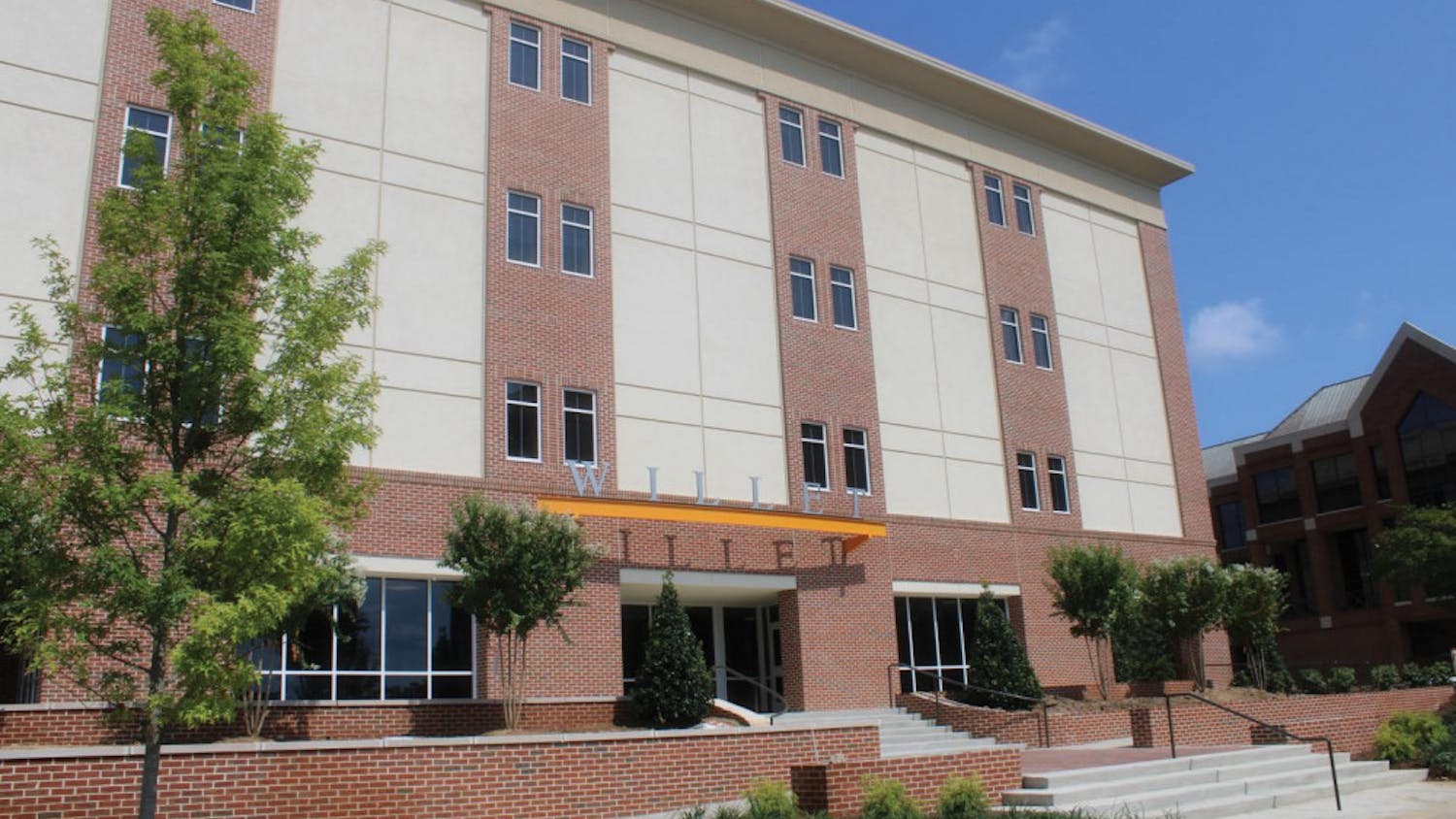A 2019 report from the Princeton Review named Mercer the 11th-most politically conservative college in the United States. The data was based on students’ responses when asked to rate themselves “far-left, Democrat, non-partisan, Republican or far-right.”
The ranking makes Mercer the most conservative school in the state and one of only two Georgia schools on the list. The other, Berry College in Rome, placed No. 20.
Vice President of Young Democrats Ana Muntean said she wasn’t surprised by Mercer’s rank.
“The majority of students who go to Mercer do identify as conservative from what I’ve observed,” she said. “Most of the liberals that we do have on campus aren’t even close to being radical liberals. They’re liberal centrists, but people on the right on campus are so reactionary that they mistake the mild progressivism of centrists, such as supporting LGBT rights, as radical views.”
Muntean, a junior, said the campus political climate has been “divisive” throughout her years as a student.
“There are many instances I’ve observed during my time at Mercer which lead me to believe that many people are on polar opposites, which tends to cause tension on campus,” she said.
Muntean said she first realized the political tension during her freshman year when she saw students chalk phrases such as “Build the Wall” across campus leading up to the 2016 elections. She said some in the Mercer community felt targeted and hurt by these messages.
However, she said the greatest example of political division occurred during Founders’ Day 2018, when some students felt marginalized by the selection of Trump attorney Jay Sekulow as the speaker.
Muntean helped organize a symbolic protest against Sekulow as a part of student group Fighting for Our Rights and Gender Equality (FORGE). She said the administration’s choice of speaker and response to community concerns indicated that Mercer’s overarching conservatism extends beyond the student body.
“Clubs on campus were allowed to have a form of silent protest in response to the divisive speaker, but we were very limited in what we could do, and I feel that limitations such as those imposed upon us during that protest are too common with typically liberal-leaning clubs,” Muntean said.
While Muntean agreed with The Princeton Review’s ranking, John Longshore, president of the university’s chapter of College Republicans, questioned it.
He said there might be “a slight tilt to the liberal people” over conservatives at Mercer, but that the school overall has a more neutral -- and muted -- political climate.
“In terms of the tone of politics on campus, I think even though there are liberals and there are conservatives, it’s not loud,” he said.
Longshore said that some colleges attract students who generally hold the same political convictions, which can create a politically engaged, but unnecessarily polarized, environment that Mercer doesn’t have. He cited The University of California-Berkeley, where overwhelming campus outrage over conservative commentator Ann Coulter’s invitation to speak at the school caused some right-leaning students to feel shamed for their views.
At Mercer, he said it’s a different story.
“As a conservative, and then as a conservative who’s in the political science department, I definitely haven’t been discriminated against,” Longshore said.
He said that both students and faculty appreciate diverse ideas, especially in his political science classes.
“I’ve found that the professors are liberal, but they’re not far, far left, and in addition to that, they definitely value a lot more intellectual conversations,” he said. “It seems like they would almost value a smart conservative person over a dumb liberal person.”
Will Jordan, associate professor of political science and faculty sponsor of Mercer’s chapter of College Republicans, said it’s hard to tell whether students really lean more one way or the other because the majority of students aren’t engaged in politics -- although he said that’s not necessarily a bad thing.
“It might be the case that students at Mercer are a little less politically energized,” he said. “I think that probably our political climate is a little less heated than it is lots of places across the country.”
Jordan said one reason Mercerians may be less motivated by politics is because the school enrolls a number of academic high-achievers, especially first-generation college students, for whom classes are the priority and extracurricular or political involvement could seem less important.
“Our students are pretty pragmatic,” Jordan said. “That might explain it a little bit, I don’t know. I think partly it’s probably location, too.”
He said that because Mercer is located in a majority-Republican state, conservative students may have felt more comfortable identifying themselves that way in the surveys used to rank campus political climates.
The self-reporting method of data collection may have led to skewed results, he said, since students at more politically-involved schools don’t always feel empowered to label themselves one way or another.
“I’m kind of surprised that we’re that high (on the list), because I do think we’re a pretty diverse place,” Jordan said. “I don’t think Mercer is a place where conservative is the dominant voice on campus, among students or faculty … I kind of doubt that there are very many students on campus who feel, either left or right, too constrained.”
Princeton Review ranks Mercer as one of America’s most conservative schools

The Republican elephant represents conservative ideology.




